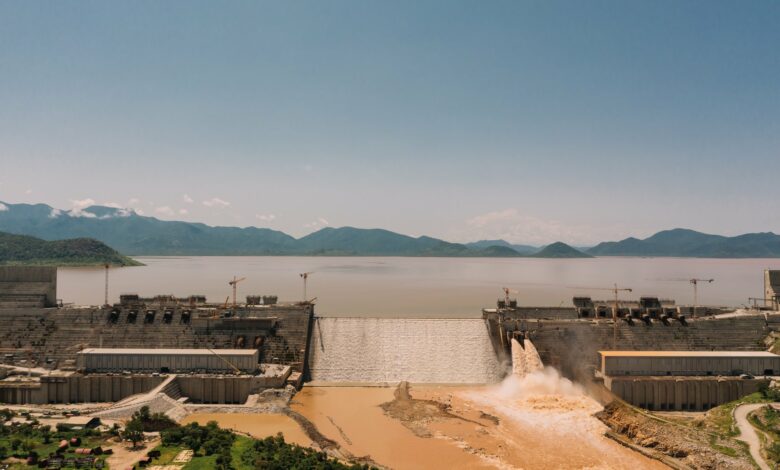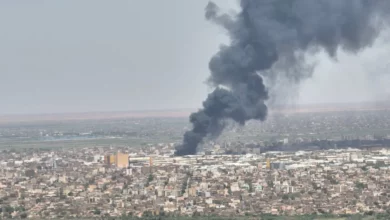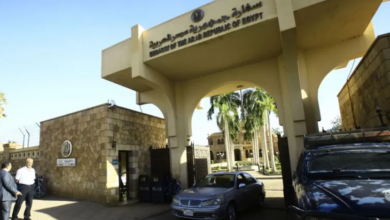
The head of the Defense and National Security Committee in the Egyptian Senate, Lieutenant-General Osama al-Gendy, quoted Sisi as saying that GERD negotiations cannot continue on indefinitely.
“Negotiating with Ethiopia over the Renaissance Dam that Addis Ababa is building on the banks of the Nile can not continue indefinitely. As the Egyptian state understands the requirements of Ethiopian development, that development should not be at the expense of others,” he said.
Both Cairo and Khartoum see the Renaissance Dam as a danger to their share of the Nile water, he added.
Gendy pointed out that in September 2011, the Egyptian and Ethiopian authorities agreed to form an international committee to study the impact of building the Renaissance Dam, and in May 2012 the committee began its work by examining Ethiopian engineering studies, and the potential impact of the dam on Egypt and Sudan.
This expert committee which comprised international experts then issued a report recommending conducting studies evaluating the effects of the dam on the two downstream countries.
Negotiations were halted after Egypt refused to form a technical committee without foreign experts.
In June 2014, the authorities in Egypt and Ethiopia agreed to resume negotiations again, and the first meeting of a tripartite committee comprising Egypt, Ethiopia and Sudan was held to discuss the formulation of terms of reference for the technical committee and its procedural rules, and to agree on the periodicity of holding meetings.
After which Egypt, Ethiopia and Sudan agreed to choose two consulting offices, one Dutch and the other French, to conduct the required studies on the dam.
In March 2015, President Sisi, his Sudanese counterpart Omar al-Bashir, and Ethiopia’s former Prime Minister Hailemariam Desalegn signed in the Sudanese capital, Khartoum the “Declaration of Principles” for the Renaissance Dam.
These included ten basic principles, consistent with the general rules of international law governing international rivers.
The GERD crisis has entered its tenth year in a row.
Cairo submitted a fair technical proposal that takes into account Ethiopia’s interests and its needs for electricity from the dam, without harming Egyptian water interests, and its share of water, he continued.
Egypt’s share of water is estimated at 55 billion cubic meters annually, according to the agreements signed between Egypt and Ethiopia, which all stipulated to preserve the water resources of the downstream countries, and pledge not to harm the water interests by constructing dam projects that obstruct the flow of water to those countries without referring to the three countries and agreeing.
Negotiations failed between the three countries to reach the desired results after more than four years of direct negotiations since the signing of the Declaration of Principles in 2015.
Gendy stated that the situation must find an effective international role to overcome the current stalemate, bring the views of the three countries closer, and reach a fair and balanced agreement based on respect for the principles of international law governing the management and use of international rivers, which allow countries to benefit from their water resources without prejudice to the interests and rights of other parties.




